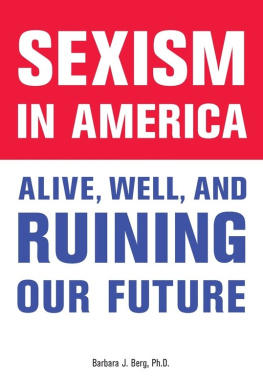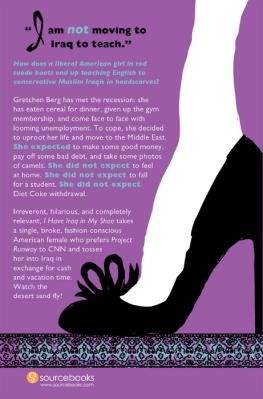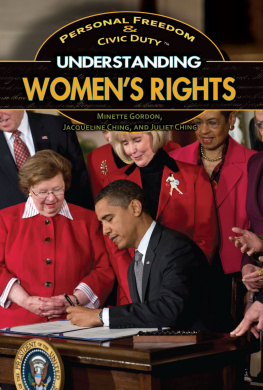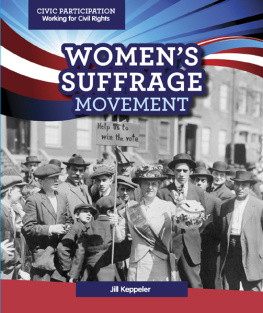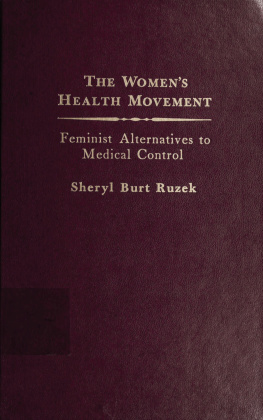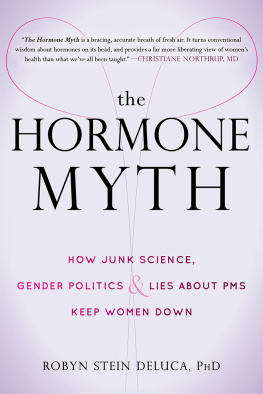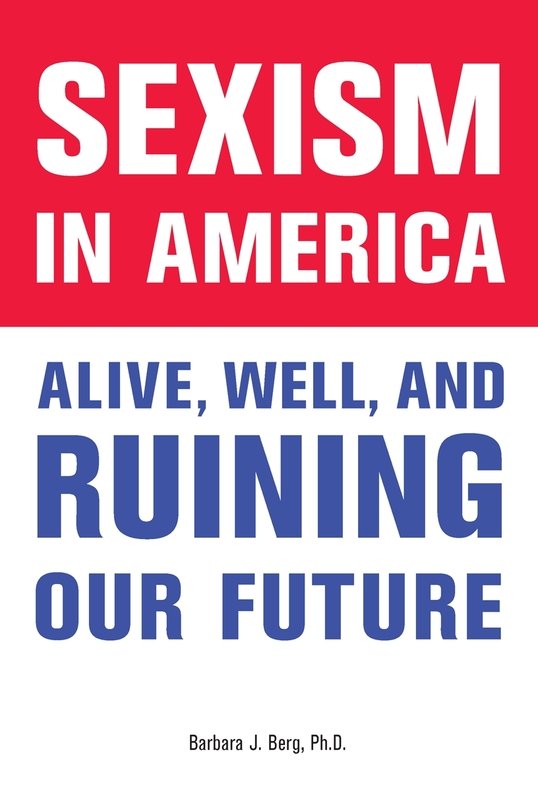ACKNOWLEDGMENTS
I am fortunate to have received ongoing encouragement and support while writing this book. Deborah and Ralph Blumenthal, Jane and John Brickman, Miriam Forman-Brunell, Nina and Peter Cobb, Susan Heath, Rosalind and Bob Konigsberg, Susan Maier, Susan Pollock, Amanda Rolat, Patty Wineapple, and Gerri Woods have all offered cogent, critical insights to the manuscript in its different stages. Their generosity of time and spirit and their unfailing interest and abiding friendships have enhanced my work and kept me going through the inevitable rough spots.
I am also indebted to Lynn La Pierre, who was always at the ready to read and discuss my writing, and whose help in developing my online survey was invaluable. Lynne Hirsh did a wonderful job of designing my Web site, making it possible for me to reach hundreds of women across the country. Kari Etter and Laura Harrington graciously assisted with my many emergency computer problems and saved my manuscript on numerous occasions.
My editors at Chicago Review Press, Sue Betz and Lisa Reardon, have been steadfast allies in this project. Im deeply appreciative of their commitment to the topic as well as their sage counsel and hard work.
Deborah Schneider, my literary agent, is truly in a class by herself. She is that rare beinguncommonly intelligent, deeply dedicated to her writers, remarkable in her understanding of how and where a manuscript will flourish, and unstinting in her efforts to make it happen. Sexism in America originated over the course of several conversations in her office. Her passionate response to the subject matter and her professional expertise transformed our wonderful talks into this book. And while I dont want her to be overrun with authors, she epitomizes the best in the business. I am grateful as well to Cathy Gleason, Britt Carlson, and Victoria Marini of the Gelfman Schneider Agency for their ongoing, enthusiastic assistance.
Thank you also to all the women and school-age girls who took time out of their hectic schedules to answer my survey and then pass it on to their friends, relatives, and colleagues. Your stories have motivated and enriched this endeavor. I have integrated them throughout the book, changing the names of those who requested I do so. Any book as comprehensive as this one has many roots (and many intellectual debts). My thinking has been shaped by students in my history and medical school classes and by the women Ive met through various organizations and associations who have touched my life.
My entire family has been magnificent throughout this entire process. The younger generation, especially, has formed the go-to group for reality checks about whats up and in with the twenty- and thirtysomething set. My children and their spousesAlison and Michael Dalewitz, Andrew Schlanger, and Laura and Alexis Magedhave been a constant source of love and enthusiasm. Always available to talk and always interested in my progress, their unflagging belief in my ability to meet my deadline made me believe it also, even when time and energy argued otherwise.
Finally, my husband, Arnold Schlanger, has listened to, read, and discussed every aspect of my book. I could not and would not write without him. He is an eternal optimist and my partner in everything. My gratitude extends beyond what I can adequately convey. It is ineffable and everlasting.
My great sadness is that my motheran educator, social activist, and inspirationdid not live to see Sexism in America published. Her death during the final stages of its revision was for all of us an immeasurable loss. I humbly hope that this book, in some small way, honors and pays tribute to her life.
CONCLUSION
THE CHANGE WE NEED
A society delegitimizing womens accomplishments is one putting its future at risk. We are robbing ourselves of the creativity, intelligence, resourcefulness, and vision of more than half our population. Theres no acceptable reason for this. And it makes no sense. Not economically, politically, or socially. Maintaining our ballast amid the battering waves of both fiscal and foreign upheavals will be arduous enough. If ever our nation faced an all hands on deck moment, this is it. But instead of utilizing all available talent, our culture pounds with distorted values and ideas about human nature, behavior, and interaction, consistently pushing women to the sidelines.
Eighteen Million Cracks Waiting to Be Smashed
During the long, drawn-out 2008 primary season, womens issues hardly got a mention. Not from John McCain, nor from Barack Obama. Only toward the end of Hillary Clintons campaign did she mine the rich lode of womens support and transform herself into their candidate. It proved to be political gold. Women who for years had been marginalized, who had been cowed and uncomfortable about speaking up, suddenly felt invigorated. They flocked to her side. Even those who werent big Hillary fans grudgingly admired her pluckiness and smarts. Women of a certain age marveled at her boundless energy and at how good she looked with so little sleep. Her refusal to quit months before the end, when the big boys in the party angrily told her to go home, gained her new respect.
Many women saw themselves in her strugglesin her troubled marriage and messy backstorybut mostly in her encounters with maleintolerance. When hecklers mocked Iron my shirts, the female audience heard their own versions of the same.
Whether it was sheer luck or brilliant intuition, Clinton opened a sealed-off chamber within the hearts of women across the nation. Out flowed a mighty unhappiness at lives sculpted by a barely acknowledged gender inequality. She summoned women to a new cognizance of the brambly, still-unfinished path to liberation. Onto her candidacy they projected their previously unidentified grievances and hopes. This, as much as any other factor, explains the fervor and passion of her female supporters. Not because they necessarily liked everything she did or how shed voted, but because she was them, writ large. Right or wrong, they believed she was fighting their battles. And just at the end, they made her believe it also.
Although Hillary Clintons I Am Woman stance came just a little too late, her achievement validated to millions of women the righteousness of their cause. Its too soon to know how history will judge her failed run for the nomination. In her concession speech she talked about the eighteen million cracks in the glass ceiling. Most likely another woman at another time will smash it entirely, without having to prove over and over again that shes tough enough, man enough, to do it. Sarah Palin, in her speech at the Republican convention, referred to that fractured barrier, anointing herself Clintons heir apparent.
The Palin Perplexity
Sarah Palin had astonishing appeal. Energetic and articulate, the self-proclaimed hockey mom mobilized the conservative base, turning John McCains tepid rallies into Angelina Joliesized events. Palin knew how to walk the walk and talk the talk, inserting coded pro-life messages into her fiery speeches. In discussing her Down syndrome baby, she told a crowd, John McCain and I have a vision for America where every innocent life counts. The right went gaga over her. William Kristol praised her to the hilt; Pat Buchanan was adoring; Rush Limbaugh called her a babe. She portrayed herself as a populist, the ultimate maverick, the real deal who scorned pretense and made a virtue out of anti-intellectualism, lack of curiosity, even of ignorance. Any attempt to scrutinize her background orquestion her readiness for office received vociferous condemnation from her supporters, who cried Sexism!

